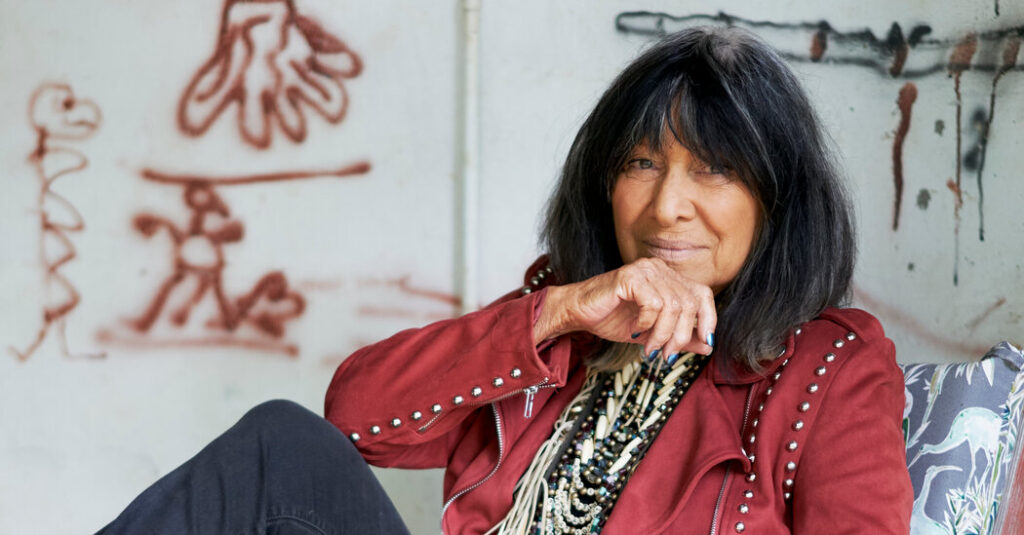
By that time, music wasn’t Sainte-Marie’s only outlet. She was cast in an episode of the popular western TV series “The Virginian,” but she declined to appear unless all of the Indigenous roles were filled by Indigenous actors. (The producers initially resisted, assuring Sainte-Marie, horrifyingly, “Our makeup people are fantastic — they can turn a dog into a cat!,” she recalls in the film. She didn’t back down, though, and they eventually complied.) In 1975, Sainte-Marie was invited to appear on “Sesame Street,” and she soon became a fixture on the program. During a 1977 episode, she nursed her young son and is believed to be the first person to breastfeed on television. (“Lots of mothers feed their babies this way,” she explained to an inquisitive Big Bird.)
Tagaq, who is 47, remembers seeing Sainte-Marie for the first time on “Sesame Street” as a child. “Back then there wasn’t a lot of representation of Indigenous people just being normal,” she said. “It was always a cowboy-and-Indian movie or something like that. But the first time I saw her on TV, she was just being a person, which was great.”
From the late-60s on, Sainte-Marie was also involved in activism with the American Indian Movement — an association that, though she didn’t realize it at the time, was partially responsible for her fading impact in the United States. Years later, before an American radio interview, a D.J. apologized to her for pulling her music from his programming in that era. He then showed her a letter, on White House stationery, commending him for having suppressed Sainte-Marie’s music. She was flabbergasted. A lawyer later helped her get access to an F.B.I. file on her, which was longer than she ever imagined.
“I was having a heck of a time in other countries,” Sainte-Marie said, “and when I came back to the U.S. everything had kind of gone away and my records weren’t played.” It “never occurred” to her that there was a government-supported ban of her music. “I just thought, singers come, singers go.”
Despite all of the challenges of her life, Sainte-Marie’s infectiously hopeful energy and radiant smile seem impermeable to cynicism and despair. “I don’t like misery of any kind,” she said. “So if something starts bothering me, I either put up an umbrella or I go inside. I do something about it, because I’m really uncomfortable being unhappy. I try to keep my nose on the joy trail.”
You may also like
-
Interview with Gui Pimentel and Rodrigo Duarte
-
Celebrating Diversity and Excellence: Mrs Universal Empire’s International Gold Awards Ceremony in Muscat
-
Ari Kim: Crafting Cinematic Tales in the Heart of NYC
-
Mike Mizzle: The Rising Star Taking Social Media by Storm!
-
Jose Comelon: The Giant of Children’s Content, Number 1 on Netflix!

